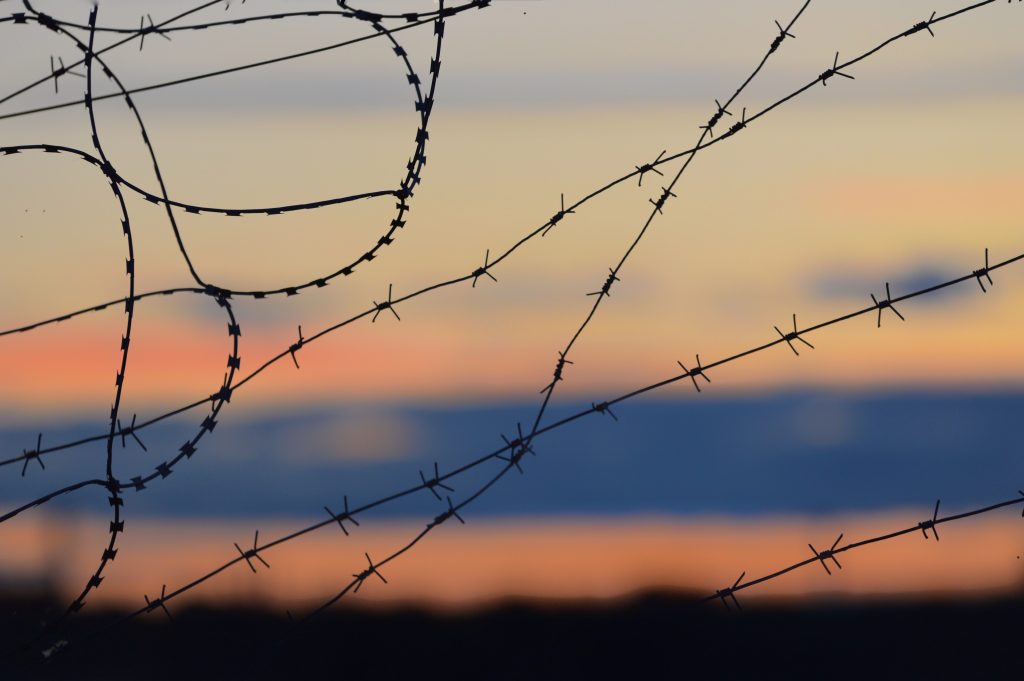
“This isn’t a story about war. It’s about ruin.” (American War, chapter 1)
Omar Akkad’s 2017 American War is classified as a war science fiction novel. But is it science fiction? The international bestseller and winner of the Kobo Emerging Writer Prize is made up of fragments from real life events. From the first American Civil War, the Guantanamo Bay detention camps, to the more recent Afghanistan conflict in which Akkad was a journalist himself, readers are bombarded with the suffering of others.
The metafiction – set between 2075 and 2095 – follows the story of 6-year-old Sarat Chestnut after her father is killed in a homicide bombing. Taken to camp Patience with her siblings and mother, Sarat’s childhood is lived in a state of limbo: not dead, not alive, purely surviving the war. To say the character’s imprisonment even comes close to the uncertainty brought into the world by the Covid 19 pandemic is hyperbolic. But with death tolls rising every passing day, the line between reality and dystopian fiction seems blurred.
After the refugee camp, Sarat and her twin sister Dana are transported to Georgia, left to take care of their now mutilated brother. Sarat and Dana are polar opposites: whilst Sarat is a ‘tomboy,’ looking for adventures, Dana wants to be a lady, critically bringing forward the sexist gender stereotypes of how to and how not to act. Dana is considered ‘normal’ whereas Sarat is alienated. Akkad challenges how millennials can succeed in abolishing gender stereotypes. Are women still sexually objectified? Are they dominated by patriarchal ideologies? The issue still stands; the answer to these questions is yes.
Over the years, Sarat witnesses the death of her twin sister, living in a house with the shadow of her brother’s former self, to becoming a killing machine in a futile attempt to end the war she was born into. From the prologue – written by the omniscient narrator who happens to be Sarat’s nephew Benjamin – the author brings an element of foreshadowing to the story. So, should readers really be shocked when she is caught, held captive, and abused for crimes she hasn’t committed? There was no question around Sarat’s inevitable death, only a question of when. The protagonist expectantly sacrifices herself by being the first victim of a virus meant to end the war. Benjamin is then an accomplice, mediating history and narrating the faith of a tragic hero flawed by her need for revenge.
At its core, the novel gravitates around political conflict. The Southern resistance, rebelling against the Northern states is like the now finalised Brexit debate. Some may argue it reflects recent protests around immunisation. Should vaccines be compulsory – a way of protecting others – or should it be a free choice? The fictional element of the novel is gradually dissipating. At the end of the day, the government has the authority and power to indoctrinate the powerless, but we are still a democracy. Like Surat’s resistance, there will always be people rebelling against the new and unknown.
Ironically, global news seemed to only get worse in the four years following the novel’s release. Benjamin’s free indirect discourse therefore gives each chapter a chillingly realistic nature. As part of Gen Z, we arguably mirror Benjamin’s role in narrating his aunt’s life. Covid 19 is our present and we will ultimately be the generation recounting the loss left behind. Written with the intention of being an allegorical warning for what could happen, Akkad unconsciously wrote a testament to the temporality of human lives.
The American War is in the future. We are still able to change the gravity of ongoing conflicts and tragedies. The indirect question posed by Akkad is whether we will choose to stop adversity. Should this virus give us a sense of relief when perceived as a promise for something better, or is it just the start of something worse? We can decide.
